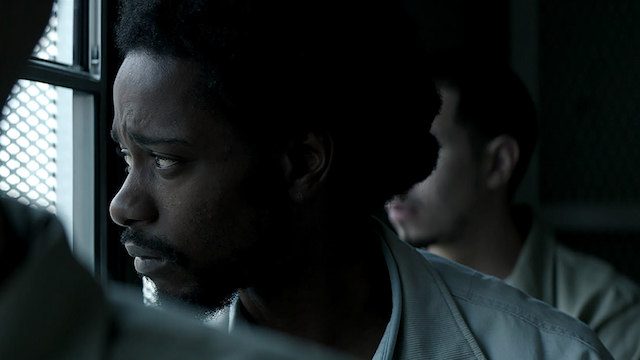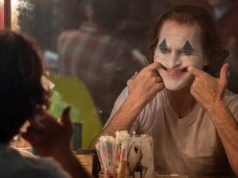
We’ve seen a lot of films like “Crown Heights” lately — true stories about black people getting screwed over by police and the justice system. The surge is a testament to the increased awareness of these issues, and a reflection of the sad fact that the supply of real incidents on which to base such movies is seemingly inexhaustible. This particular film, written and directed by Matt Ruskin (“The Hip Hop Project”), is a swift, solid entry with passionate performances by Lakeith Stanfield and Nnamdi Asomugha. It would stand out more if it didn’t have so much company, but that’s part of the problem, isn’t it? How do you get people to care about acts of injustice when there are SO MANY OF THEM?
Stanfield plays Colin Warner, a Trinidadian 18-year-old who was arrested for murder in the titular Brooklyn neighborhood in April 1980. As the film presents things, Colin isn’t a completely upstanding citizen (we see him breaking into cars), but he had nothing to do with this or any other murder. It’s a case of mistaken identity, pure and simple. The only question is whether the witness mis-identified him accidentally or on purpose.
That’s the only question for Colin and us, anyway. For the bullying police detective (Zach Grenier) and D.A. (Josh Pais) working the case, the only question is how fast they can convict somebody. Thanks to his minority status, unfamiliarity with the U.S. legal system, and lack of money to hire good attorneys, Colin is railroaded in a most outrageous manner, convicted of murder at the movie’s 25-minute mark despite there being no motive or physical evidence connecting him to the crime.
Time passes quickly. I won’t say how much in case you don’t know the details of the case (which was the subject of a “This American Life” episode), but Ruskin underscores his points by featuring, in the background, footage of presidents Reagan, Bush, and Clinton giving “crime and punishment” speeches about policies that we now know led to mass incarceration of non-violent offenders and had a devastating impact on black men in particular. On the outside, Colin’s best friend, Carl “KC” King (Asomugha), devotes himself to proving Colin’s innocence, going so far as to take a job as a process server so he’ll come in contact with lawyers and hopefully find one to help him.
Stanfield’s mournful puppy-dog eyes and slight build (he’s 6 feet tall but rail-thin) draw out our sympathy for his plight, the nightmarish details of which the film doesn’t dwell upon. (A stint in solitary confinement passes in seconds.) Asomugha, a former NFL player, is soulful and loyal as KC, though the character falls into the usual biopic trope of being so obsessed that his wife must appear for one scene to complain that she feels neglected.
The film builds to a satisfying resolution in which the truth about what happened that fateful day in 1980 is revealed, better late than never. Ruskin’s direction is fluid and competent, his quietly outraged screenplay serviceable. A diet of nothing but films like this would be exhausting and demoralizing, but the occasional emotionally rousing docudrama is good for the soul.
B (1 hr., 34 min.; )





